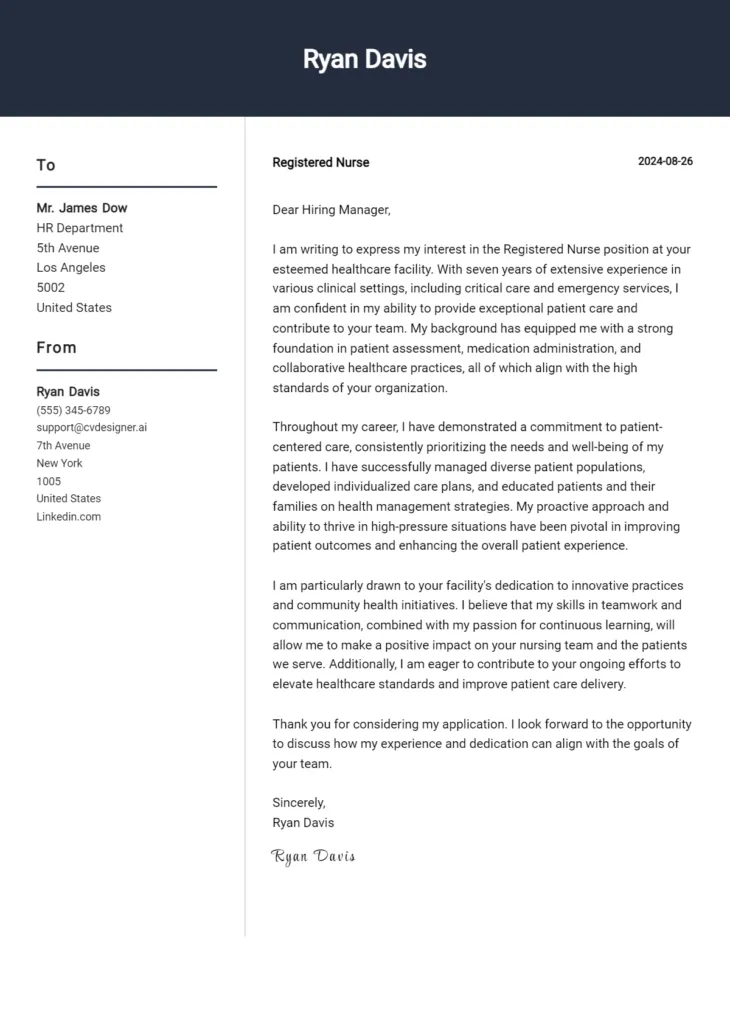Why a Nurse Residency Cover Letter Matters
A nurse residency cover letter is a crucial document in your journey to becoming a registered nurse. It serves as your first introduction to the hiring committee, providing an opportunity to showcase your qualifications, passion, and personality. Unlike a resume that simply lists your experiences, a cover letter allows you to connect with the reader on a more personal level, articulating your career goals and explaining why you’re a perfect fit for the specific program and hospital. It provides the context to your resume that allows the hiring manager to understand your motivation and the value you bring to their organization. A well-written cover letter can significantly increase your chances of securing an interview and ultimately, your desired position.
Understand the Nurse Residency Program
Before you begin writing, thoroughly research the nurse residency program to which you’re applying. Understand its focus, values, and goals. Knowing the program’s structure, the specialties offered, and the support systems available will enable you to tailor your cover letter effectively. This understanding will enable you to align your own goals and aspirations with those of the program, demonstrating that you have carefully considered their offerings and how they align with your career aspirations. This research shows initiative and genuine interest, which are qualities that residency programs highly value. Visiting the hospital’s website, reading testimonials from previous residents, and attending informational sessions are great ways to gather information.
Research the Hospital
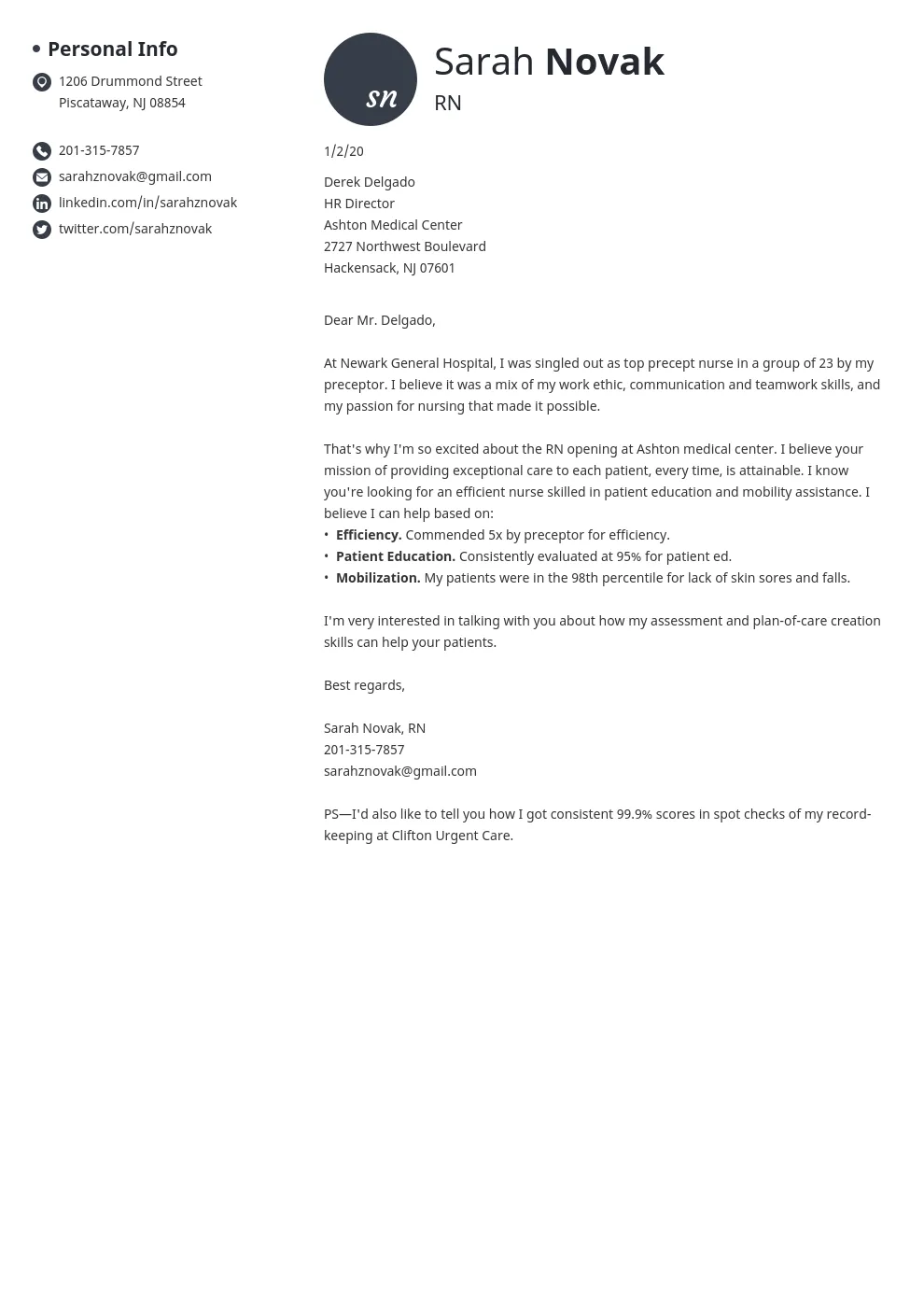
In addition to the program, research the hospital or healthcare system itself. Understand its mission, vision, and values. What is the hospital’s reputation in the community? What specific patient populations does it serve? What are its areas of excellence? This research will help you demonstrate your genuine interest in the organization, allowing you to articulate why you are drawn to this specific healthcare setting. By referencing the hospital’s commitment to patient care, research, or community involvement, you can show that you share their values and are excited to be part of their team. Mentioning specific initiatives or awards the hospital has received also shows you are paying attention to what makes them unique, proving your dedication.
The Importance of a Strong Cover Letter
A strong cover letter is crucial because it’s your chance to make a positive first impression. It’s an opportunity to highlight your personality, your motivations, and your genuine interest in the specific nursing residency program. It allows you to explain your career aspirations and connect them to the program’s offerings, thereby demonstrating that you are not just seeking any job, but a specific and strategic path for professional development. Furthermore, it helps you distinguish yourself from other applicants. By showcasing your unique skills, experiences, and personality, you can make your application more memorable and make the case for why you are the right fit. The cover letter is your chance to set the stage for your interview and build rapport with the hiring team.
Top 5 Tips for Writing a Nurse Residency Cover Letter
Tip 1 Highlight Your Passion for Nursing
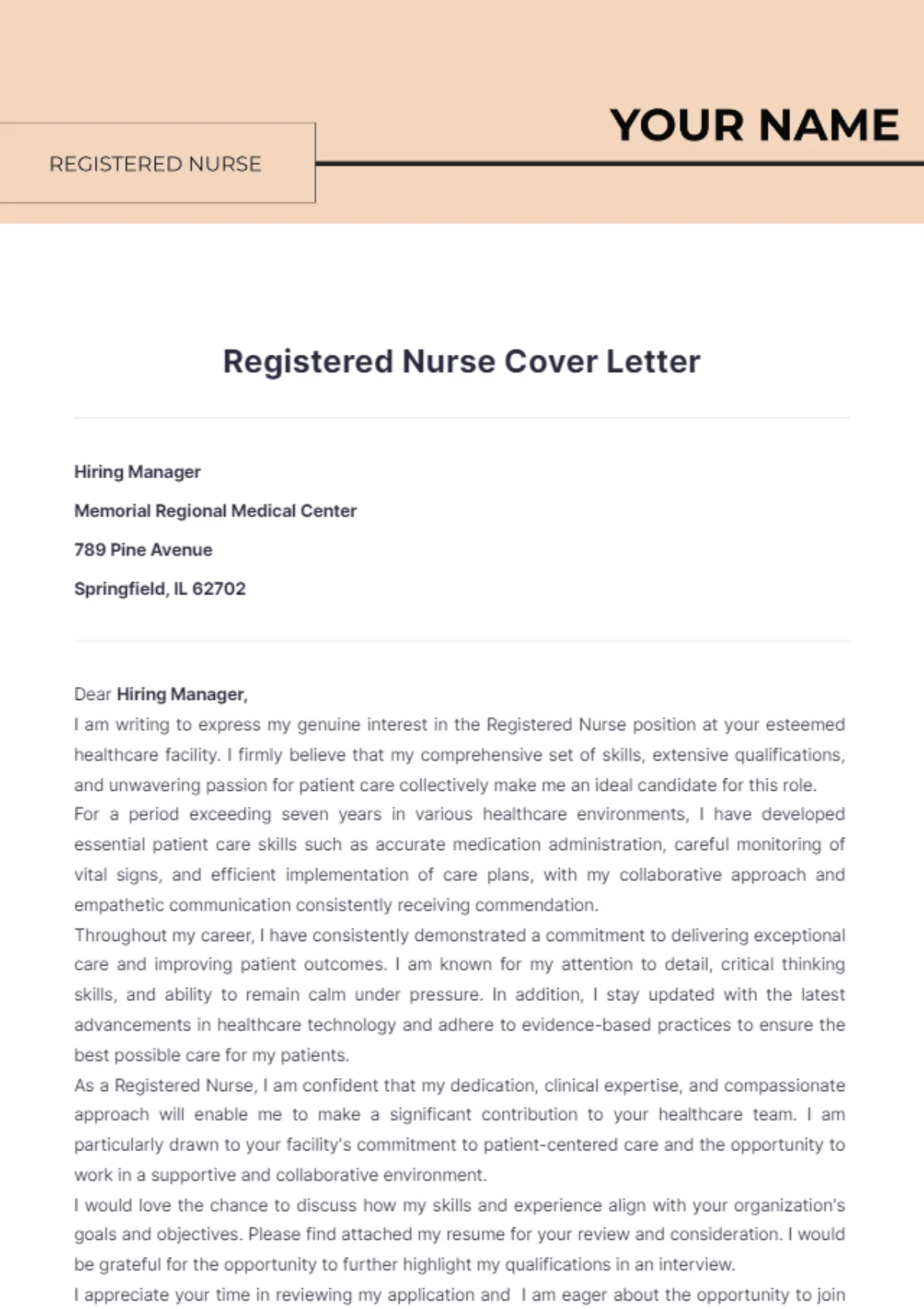
Start your cover letter by expressing your passion for nursing. Share why you chose this profession and what motivates you. This can be a personal experience, a specific area of nursing that excites you, or simply the joy you find in caring for others. Your enthusiasm will set the tone for the rest of your letter and make a positive impression on the hiring committee. It’s essential to be authentic and let your personality shine through. Be genuine when you describe your motivations and explain how you’ve been inspired or touched by previous nursing experiences. This personal touch will help you to stand out from the crowd and make your application memorable.
Show your experience
If you have clinical experiences, describe those and how they fueled your passion. If you participated in volunteering programs related to healthcare, make sure to include them. Mention any specific experiences you had in a clinical setting, such as during clinical rotations, internships, or volunteer work. This will give the hiring managers more information about what you can do. Be sure to explain what you learned from those experiences.
Demonstrate your research on the hospital
Mention specific programs the hospital offers, specific awards they have won, or community involvement. Demonstrate your knowledge of the facility. Mention what aspects of the hospital’s mission and values resonate with you. This research will demonstrate your genuine interest and provide the hiring managers with insight into the fact that you care enough to thoroughly explore the hospital’s mission.
Tip 2 Showcase Relevant Clinical Experience
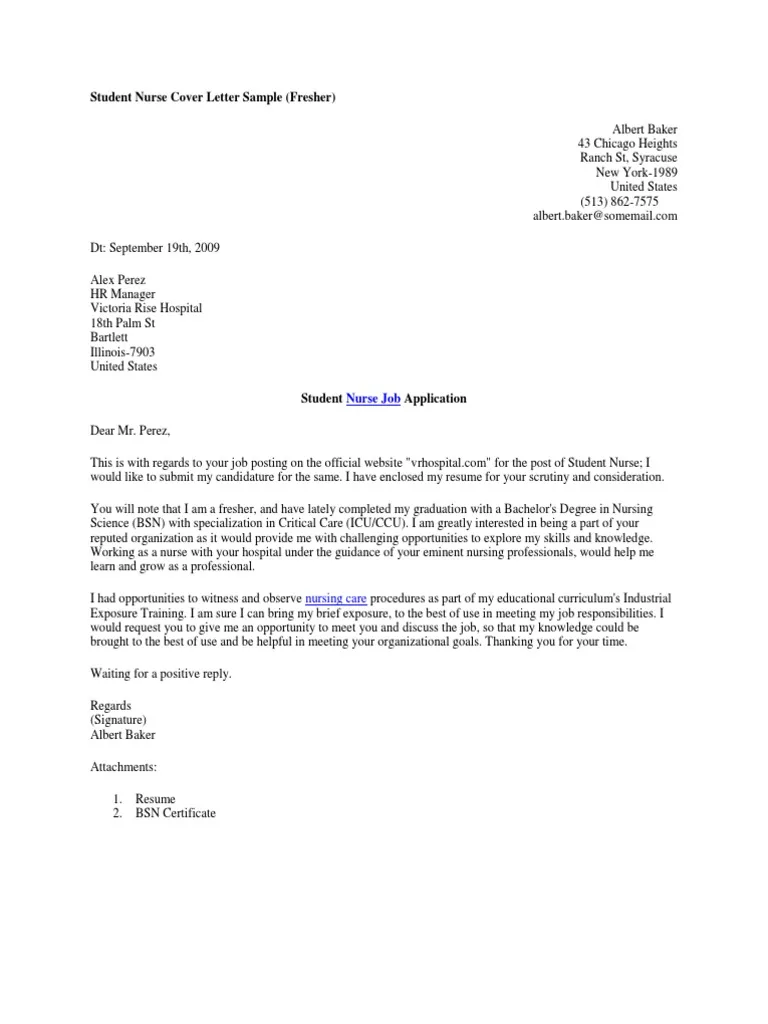
Provide details of your clinical experience, especially if it aligns with the program’s focus. This is your opportunity to show what you’ve learned, the skills you’ve developed, and the positive impact you’ve made on patients. Be specific about your duties, the patient populations you’ve worked with, and any special procedures you’ve performed. Focus on experiences that align with the program’s focus, showing why you are specifically interested in that particular area of nursing. This targeted approach demonstrates a good understanding of the profession and makes your cover letter even more compelling.
Describe Your Clinical Rotations
Describe your most relevant clinical rotations. What did you do, what did you learn, and what were the outcomes? Describe your responsibilities during your clinical rotations, the patient populations you cared for, and the skills you developed. If you had positive experiences, use specific instances to demonstrate your proficiency. Your ability to reflect on your rotations will provide the hiring manager with insight into how you deal with various situations, and that will set you apart.
Quantify Your Achievements
Use numbers and data to quantify your achievements. Instead of saying you “assisted many patients,” specify the number of patients you helped or the number of procedures you performed. This demonstrates the impact of your skills. Use metrics to show your contributions. This can include the number of patients you cared for, any improvement in patient outcomes you facilitated, or any cost savings you achieved. Providing concrete evidence will make your claims more credible and memorable.
Tip 3 Emphasize Your Skills & Qualities
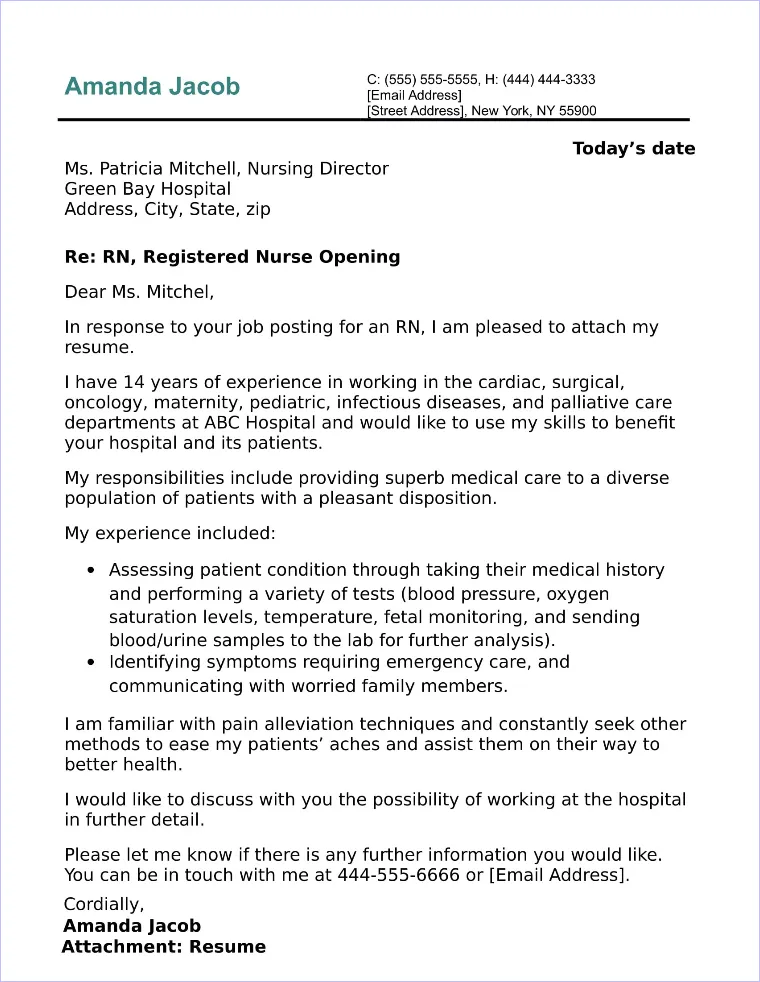
Highlight the skills and qualities that make you a strong candidate for the nurse residency program. Focus on attributes such as teamwork, critical thinking, communication, and empathy. Provide specific examples to demonstrate these qualities. Mentioning how you handled difficult situations, collaborated with other healthcare professionals, or advocated for patients will significantly strengthen your application. This way, you prove you understand the important role a nurse has in the medical field.
Highlight teamwork abilities
Describe your ability to work effectively within a team. Provide examples of how you collaborated with other healthcare professionals, resolved conflicts, and contributed to a positive work environment. Highlight moments in which you had to work with other team members to complete a task in a difficult situation. Demonstrate your understanding of the importance of teamwork in providing patient care.
Demonstrate critical thinking skills
Show your critical thinking skills by describing how you approach complex situations and make informed decisions. Provide instances where you had to assess a patient’s condition, make a quick decision, and implement an appropriate plan of care. Show how you approach a problem. By providing these examples, you demonstrate your ability to assess, analyze, and act quickly. This will assure the hiring managers of your skill, and it will showcase you as a thoughtful and reliable candidate.
Tip 4 Tailor Your Letter to the Program
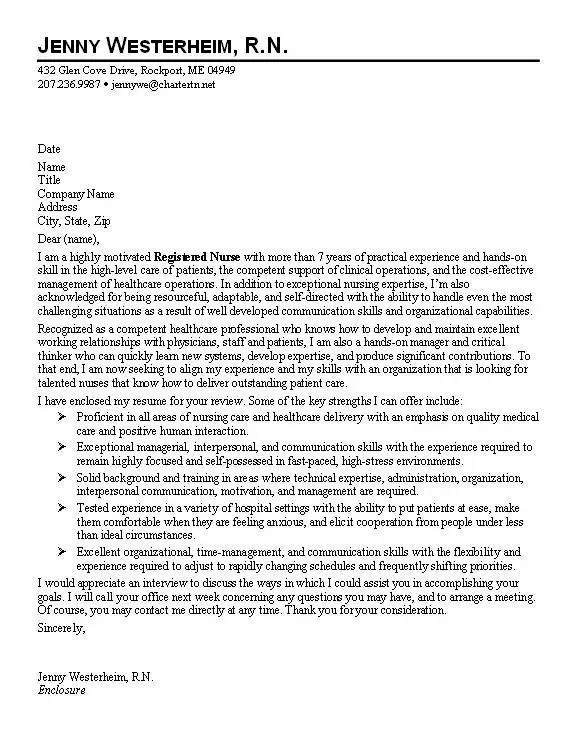
Customize your cover letter to match the specific requirements and goals of the nurse residency program. Show that you have done your research. Mention the program’s specializations or areas of focus and explain why they align with your career goals. This shows the hiring team that you’re serious about their program. Personalize your cover letter by addressing specific requirements outlined in the program description. Make sure to show your understanding of their goals. This demonstrates you understand what they are looking for.
Address Specific Requirements
Carefully review the program’s requirements and address them directly in your cover letter. Highlight how your qualifications and experiences meet their needs. Provide a clear and concise overview of how you meet the program’s criteria. Be sure to tailor your resume to fit those specific requirements, and clearly demonstrate your understanding of what they are looking for.
Mention Program Goals
Demonstrate your understanding of the program’s goals. Explain how your career aspirations align with the program’s objectives, and show your eagerness to contribute. By showing how the program’s goals align with yours, you will show that you are an ideal candidate. Showing this understanding can also help you to distinguish yourself from the competition and is an important step in landing your dream job.
Tip 5 Proofread and Edit Meticulously
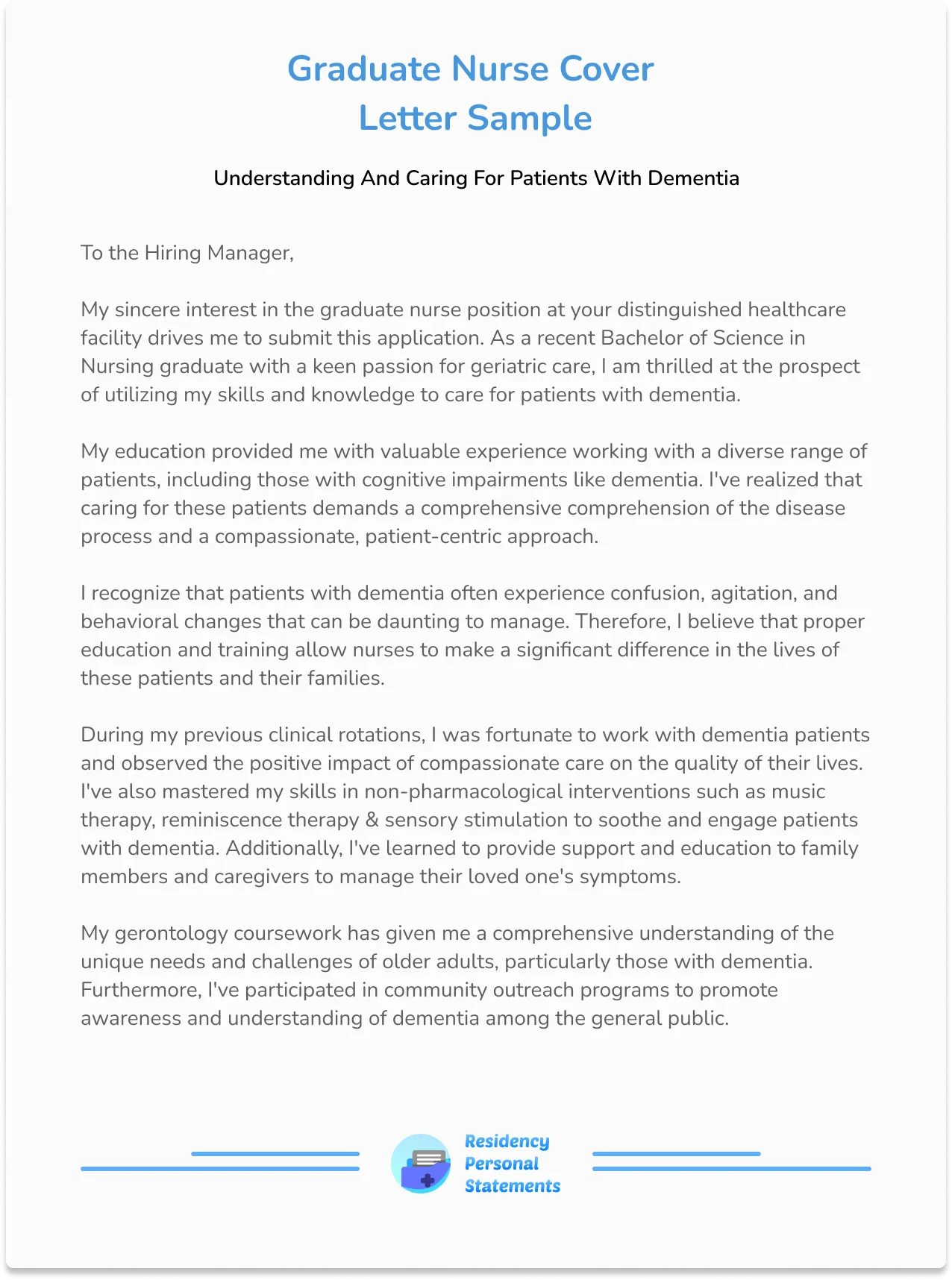
Always proofread your cover letter thoroughly for any grammatical errors or typos. A polished, error-free letter demonstrates attention to detail, a critical skill in nursing. Have someone else read it over to get a fresh perspective. Errors can create a negative impression and undermine your credibility. Ensure that your letter is clear, concise, and professional.
Check for grammatical errors
Carefully check for any errors in grammar, spelling, and punctuation. Incorrect formatting can make your letter appear unprofessional. Make sure that your formatting is consistent throughout. Before submitting your application, take your time, and read it carefully.
Ensure clarity and conciseness
Ensure that your cover letter is easy to read and understand. Use clear and concise language. Avoid jargon and complex sentences. Make sure your thoughts are organized logically and that the flow is smooth. It should get to the point quickly. This will ensure that the hiring managers will not be confused or overwhelmed by your writing. Make your main points quickly, and use short paragraphs.
Formatting and Presentation
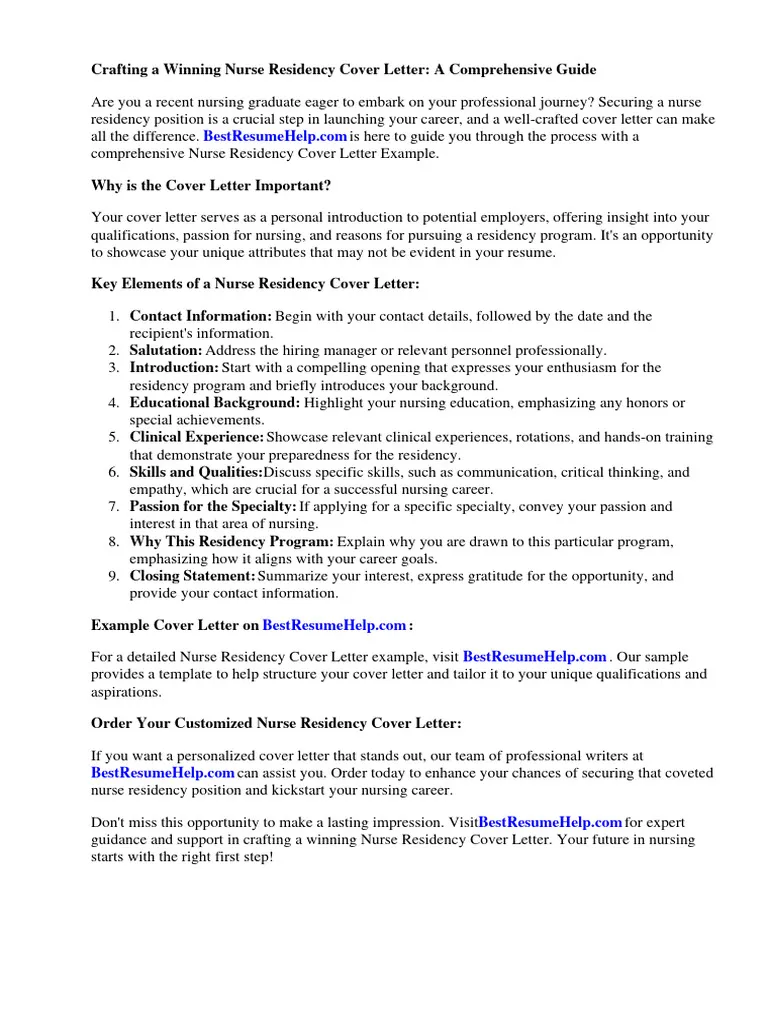
Font and Layout Guidelines
Choose a professional font, like Times New Roman or Arial, and use a standard font size (11 or 12 points). Use a clean layout with clear headings and margins to make your letter easy to read. Use standard spacing. This will help the reader digest all of the information more easily. This careful attention to formatting shows professionalism and attention to detail, and it makes your letter look neat and presentable.
Contact Information and Salutation
Include your contact information at the top of the letter. Address the hiring manager by name if possible, otherwise use a professional greeting like ‘Dear Hiring Committee’. This will give them the information they need to contact you should they choose to proceed with your application. Ensuring these details are readily available creates a favorable impression and shows you have taken the time to put your application together.
